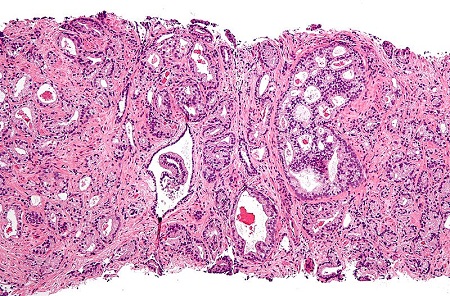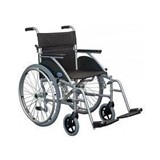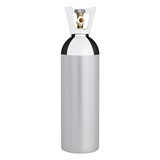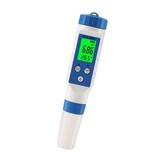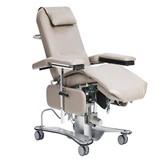The initial findings of the RADAR (Randomised Androgen Deprivation and Radiotherapy) Trial were published recently in the international journal The Lancet Oncology.
Toxicity and quality-of-life effects were studied in a cohort of 1000 men recruited between 2003-2007 across 23 cancer centres in Australia and New Zealand.
"We are aiming to see whether 18 months of hormone therapy is superior to the standard six months of treatment," Professor Denham said.
"The study is also testing whether use of the drug Zometa can prevent losses in bone mineral density caused by hormones and also prevent the spread of secondary cancers into the skeleton.
"We obviously want better treatment outcomes but not at the price of severe side effects. I am highly encouraged by the quality-of-life findings, which are considerably better than anticipated."
Cancer-related outcomes of the RADAR trial will not be known until 2014, however Professor Denham said androgen deprivation had been previously shown to destroy millions of cancer cells which otherwise would thrive on testosterone. The downside, however, was that men experienced temporary symptoms similar to menopause.
"In around one quarter of men side effects from androgen deprivation can be quite severe, with hot sweats, a reduction in libido and erectile dysfunction," he said.
"Other repercussions caused by a year or more of hormone therapy include swelling of breasts, depression, loss of cognitive function, weakening of muscles, anaemia and bone fractures due to loss of mineral density.
"The side effects can be quite devastating for a man but we found that the additional 12 months of hormone therapy had little long-term impact compared to the standard treatment. The majority of men returned to normal once the therapy ceased."
The RADAR trial was kick-started by a donation from HMRI supporters, the Gusse family. It is the successor of the Trans-Tasman Radiation Oncology Group 96.01 trial which, in findings released last year, showed a 50 per cent reduction in the death rate for men with locally advanced prostate cancer when six months’ hormone therapy was used in conjunction with radiotherapy.
Professor Denham is a radiation oncologist at the Calvary Mater Newcastle and a Conjoint Professor with the University of Newcastle. He is Director of the Prostate Cancer Trials Group, in collaboration with the Hunter Medical Research Institute's Cancer Research Program. HMRI is a partnership between the University of Newcastle, Hunter New England Health and the community.

